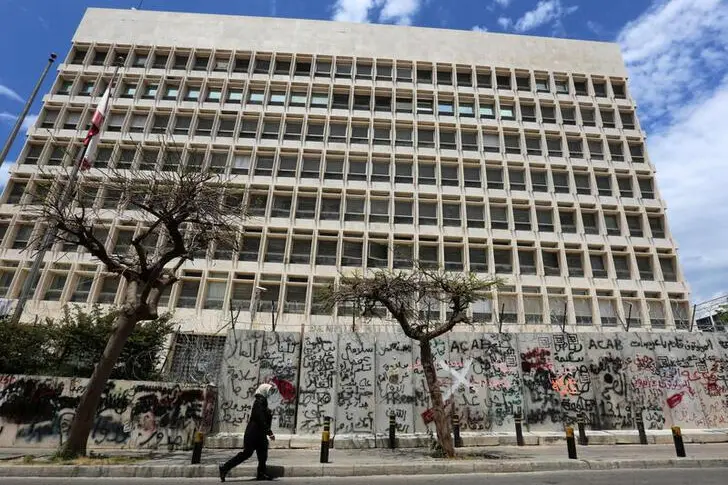PHOTO
BEIRUT- Lebanon's debt restructuring should minimise the damage to the country's nearly 3 million depositors and tap state assets to avoid damaging the country's banks, an alternate economic rescue plan issued by the banking association said on Wednesday.
Lebanon's cash-strapped banks have sharply criticised a government rescue plan that forms the basis for negotiations with the International Monetary Fund, in part because it calls for depositor contributions and a shareholder bail-in that would wipe out their capital.
In a 46-page plan of its own on Wednesday, the association called for avoiding a default on internal debt and for setting up a so-called government debt defeasance fund, where $40 billion in public assets would be placed to settle internal debts, part of ways to relieve pressure on the banks.
The comments could hold sway with the IMF, since banks are among the largest holders of Lebanon’s debt.
"While we do not doubt the prime minister's good intentions, we must warn this commission that, if implemented, the government's economic plan will lead Lebanon to a socio-economic catastrophe," banking association head Salim Sfeir said to a parliament committee on Wednesday.
The banking association has complained that it was not consulted on Beirut's plan, which sets out tough measures to resolve a crisis that has seen the currency crash, unemployment soar, and a sovereign debt default.
A source familiar with the banking association plan said the banks were seeking "a consensual negotiation, rather than haircuts being decided unilaterally" on deposits.
Lebanon began talks with the IMF last week in hopes of securing about $10 billion in financing. It is looking for about $11 billion more from other donors.
The head of parliament's budget and finance committee, Ibrahim Kanaan, said there were "big differences" in loss figures being presented to the IMF by the government, banks and other economic institutions.
"We cannot suffice like this, with differences in the estimate of figures, because we are keen to negotiate with the IMF so the numbers need to be unified," Kanaan said.
(Reporting by Tom Arnold; additional reporting and writing by Eric Knecht; editing by Jon Boyle, Larry King) ((eric.knecht@thomsonreuters.com; Reuters Messaging: eric.knecht.thomsonreuters.com@reuters.net))





















